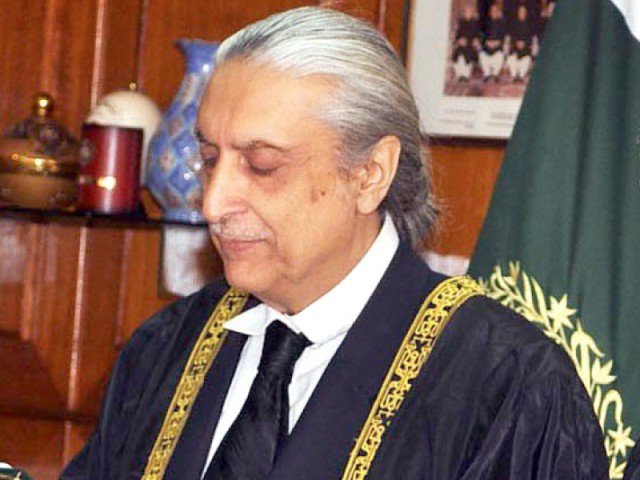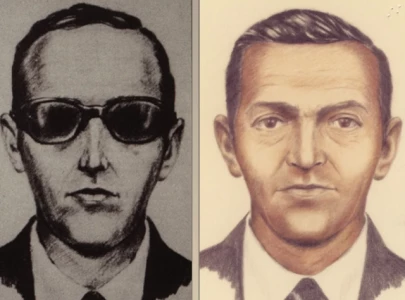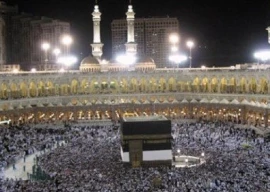
The outgoing chief justice of Pakistan, Justice Jawwad S Khawaja, has called for an alternative judicial system in order to redress the grievances of the poor.
“All institutions of the state should admit to have not yet succeeded in providing speedy justice to the masses as guaranteed in the Constitution,” he said while addressing a full court reference in his honour. “Apart from judges and lawyers, the government and the executive are also responsible for the destruction of the country’s justice system,” he added.
Justice Khawaja, who retired on Wednesday after serving as the chief justice of Pakistan for 23 days, is succeeded by Justice Anwar Zaheer Jamali, who will be sworn in today (Thursday). He strongly advocated the policy of judicial activism as well as use of suo motu powers by the judiciary under Article 184 (3) of the Constitution.

He said Article 37 (d) of the Constitution stipulates that the state institutions ensure provision of speedy justice to the masses. “However, are the masses and litigants aspiring for speedy justice being facilitated or whether there is any system of justice available in our country that can guarantee speedy justice to every individual,” he asked. “Unfortunately, the answer is in negative.”
The outgoing chief justice said it took a case an average of 25 years to reach the country’s highest court for adjudication.
He said the role of lawyers’ community is quite important in dispensation of justice to litigants. “However, a section of lawyers is not utilising its professional skills for the improvement of the legal system and for provision of speedy justice to the masses. The negative role of the lawyers is evident from day-to-day protests of the legal fraternity,” he added.
Citing an investigative report, Justice Khawaja said there had been more than 50 protests by the lawyers’ community in the district courts of the federal capital from January 1, 2014 to December 2014. These protests greatly affected the cases pending in these courts as courts had to be adjourned due to absence of counsels. “At the same time lawyers get adjournments in cases and as a result provision of justice is often delayed,” he said.
Addressing the reference, the incoming chief justice Anwar, Anwar Zaheer Jamali, observed that today the judicial system is facing lots of challenges, including unnecessary delay in the disposal of cases. “With the cooperation of lawyers’ community, a strategy will be devised to redress people’s complaints regarding delays,” he said.
Apex bodies of lawyers – Pakistan Bar Council and Supreme Court Bar Association – boycotted different ceremonies, arranged in Justice Khawaja’s honour.
Published in The Express Tribune, September 10th, 2015.


1732538123-0/BeFunky-collage-(90)1732538123-0-165x106.webp)

1732536148-0/ariana-(1)1732536148-0-165x106.webp)

1732530440-5/Copy-of-Untitled-(85)1732530440-5-270x192.webp)

1732534225-0/Express-Tribune-(13)1732534225-0-270x192.webp)








COMMENTS
Comments are moderated and generally will be posted if they are on-topic and not abusive.
For more information, please see our Comments FAQ